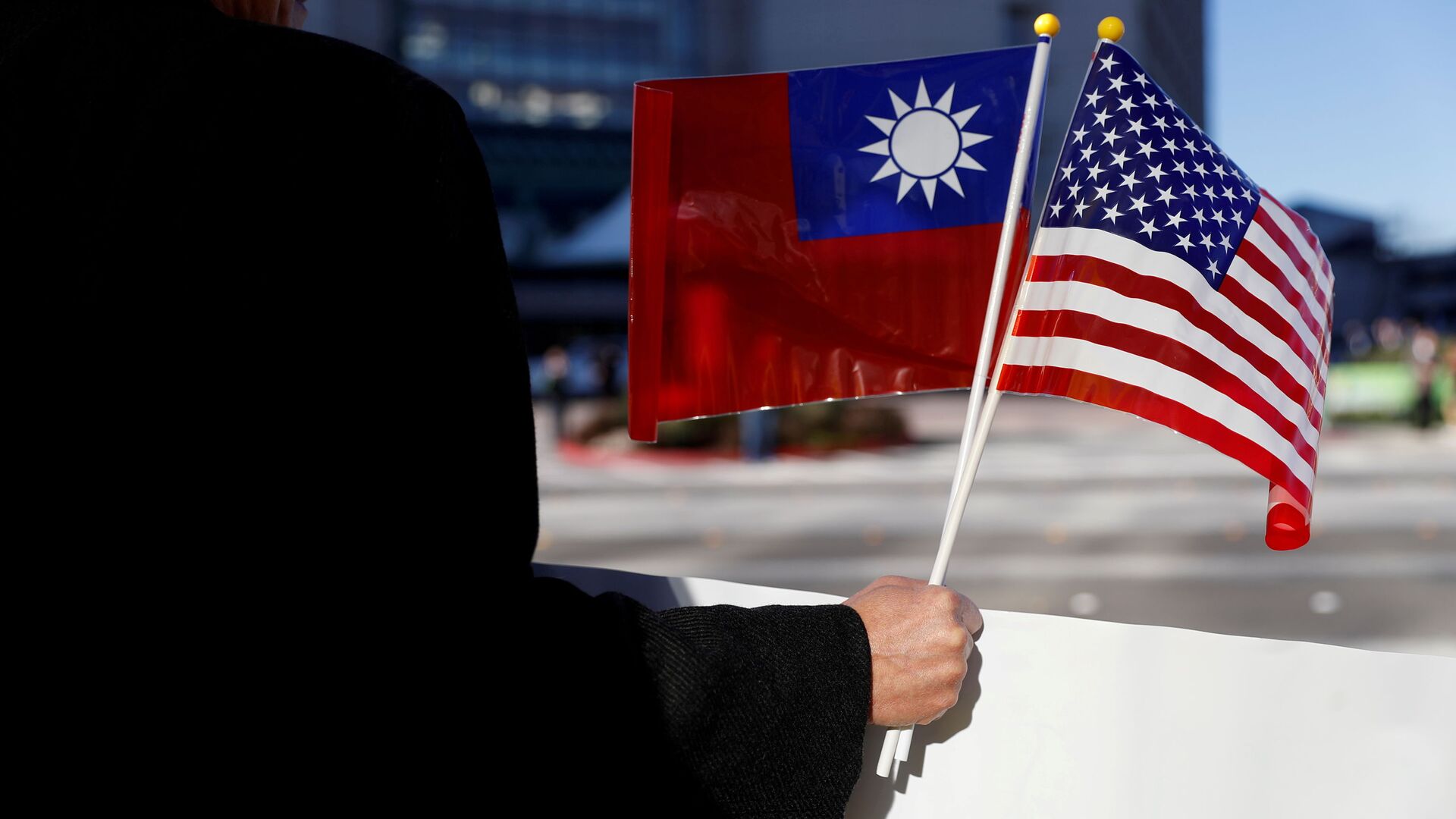Taiwan Buys Ally Guatemala a Voice in Washington Using Trump’s ‘Most Powerful Lobbyist’ - Report
22:47 GMT 18.01.2022 (Updated: 12:43 GMT 19.06.2023)

© REUTERS / Stephen Lam
Subscribe
The Taiwanese government, which calls itself the Republic of China, is running short on allies after Nicaragua switched its recognition to the People’s Republic of China (PRC) in Beijing last month. Now, the autonomous island has bought an expensive new lobbyist in Washington, DC, for one of its few remaining friends: Guatemala.
According to paperwork filed with the US Department of Justice last week under the Foreign Agents Registration Act (FARA), the government of Guatemalan President Alejandro Giammattei has engaged Florida-based lobbying firm Ballard Partners to represent their interests in Washington for a cool $900,000 a year, or $75,000 per month.
In the documentation, CEO Brian Ballard says his “activities will include advising, counseling, and assisting the foreign principal [the Guatemalan Embassy in Washington] in communications with US government officials.”
A close supporter of former US President Donald Trump, Ballard was described as “the most powerful lobbyist in Trump’s Washington” in a 2018 article by Politico, which noted the firm’s widespread ties to Republican establishment figures.
However, in a separate statement on Tuesday, Guatemala City made clear it was Taipei who would be footing the bill for Ballard’s services.
"Guatemala thanks Taiwan for the support that will allow us to enhance the country's position in the United States," the Guatemalan government told Reuters.
Taiwanese Foreign Ministry spokesperson Joanne Ou told the Associated Press that the arrangement followed the principle of “mutual assistance and mutual benefit to promote pragmatic diplomacy” and that the agreement complied with US law.
“In the future, the two countries will continue to promote various programs beneficial to their nations and peoples on the basis of the existing good cooperation,” she added.
Guatemala is just one of 14 nations to have maintained relations with Taiwan through the years, with the remainder of the globe switching its diplomatic recognition to the PRC in Beijing. Since it won the civil war in 1949 and established control over all of mainland China, the PRC has claimed to be the sole legitimate government of all of China, displacing the older RoC, which only survived on Taiwan. The PRC considers Taiwan to be a part of China and the RoC to be a rebel movement kept afloat by outside support, most notably from the United States, which funnels aid to Taipei informally.
Several Central American states have switched their recognition in recent years, including Panama, El Salvador, and most recently Nicaragua, which announced it was opening relations with the PRC last month following a new round of sanctions against Managua by Washington. Honduras also shows hints of being ready to change its recognition, but a figure from President-elect Xiomara Castro’s transition team recently said that while she campaigned on ending relations with Taiwan, such a policy change would not be immediate.
Since 2016, when the pro-independence government of Taiwanese President Tsai Ing-wen took office, Taiwan’s allies have shrunk by more than one-third, from 22 to just 14. Many who have switched have gone on to sign agreements under the Belt and Road Initiative, an infrastructure megaproject organized by Beijing that has brought development to many Third World nations through a system independent of Western finance capital, which is centered in major American and European financial hubs and often requires nations to surrender their fiscal policies to neoliberal dictates.
Speaking at a Tuesday forum in Beijing, Chinese vice foreign minister Le Yucheng taunted Taipei for its fleeing friends, saying, “it is a matter of time before Taiwan’s diplomatic allies will be zero,” which he called “international justice.”
